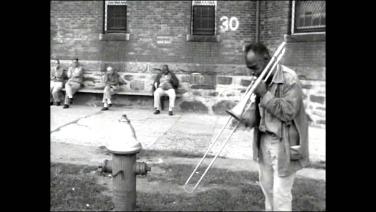
Titicut Follies, Frederick Wiseman, USA, 1967, 84’
Wiseman was a young Law student when he started visiting Bridgewater State Hospital, Massachusetts, a place for prisoners with mental problems. He had though, already gotten into cinema, having produced a feature film by Shirley Clarke in 1964. But this direct, raw, unforgettable portrait of a mental asylum, with its forms of therapy, its patients, its bodies, its day-to-day occurrences, was his first work as director and laid the foundations of his unmistakable style of direct cinema.
Wiseman decided to observe and record everything that happened in front of his camera, without any need to subsequently add narration. Placing all his trust, first and foremost, in the power of images and sounds, and then the editing stage to bring sense – political, critical, cinematographic – to what had been shot. The result is a film that shows, in all its naked crudeness, the kind of reality that audiences could not previously imagine: situations of isolation, intimidation, force, accompaniment, mistrust, in a system that wasn’t working.
The film was banned and audiences were only able to see this key testimony to the history of documentary cinema after the institution was closed.
Wiseman was a young Law student when he started visiting Bridgewater State Hospital, Massachusetts, a place for prisoners with mental problems.
